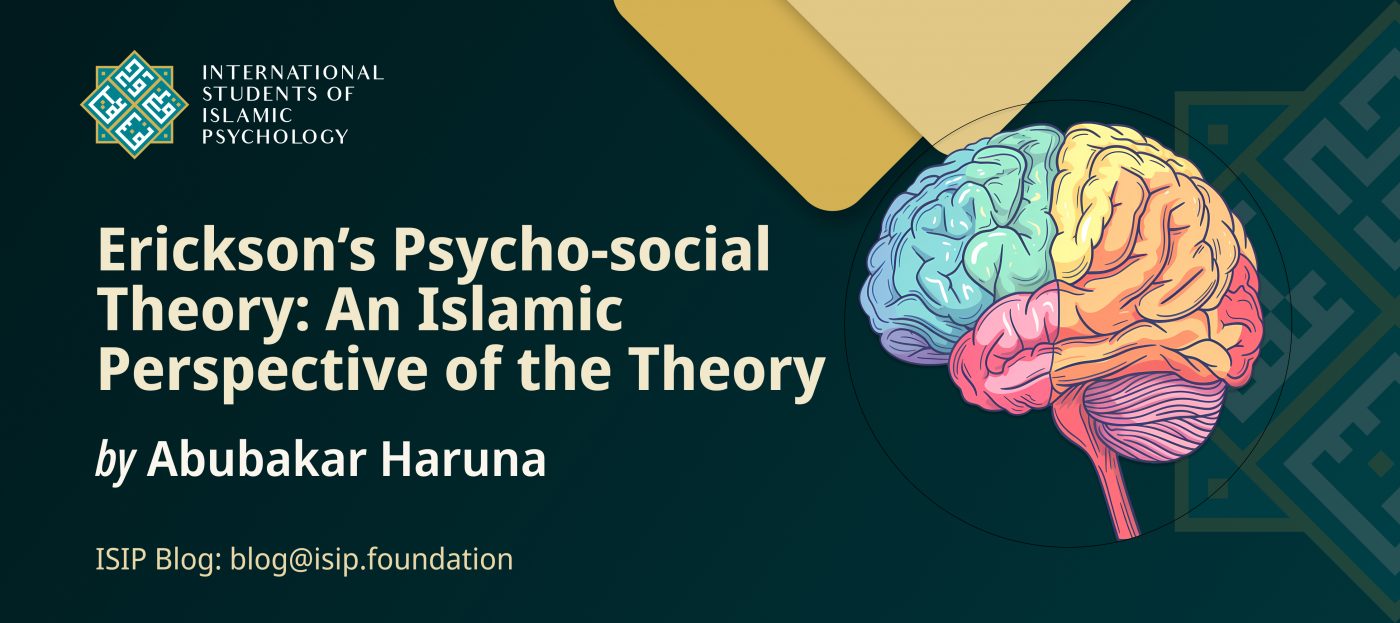
by Abubakar Haruna
Introduction
Psychosocial theory, pioneered by Erik Erikson, is a developmental theory that emphasises the interaction between individual psychological development and social factors. Erikson proposed eight stages of psychosocial development, each characterised by a unique conflict or challenge that individuals must navigate to achieve healthy development.
According to Erikson (1963), each stage of psychosocial development presents a crisis that individuals must resolve to progress successfully to the next stage. These crises involve finding a balance between opposing psychological forces. For example, in the infancy stage, the conflict is trust versus mistrust, where infants learn to trust their caregivers and the world around them.
Erikson’s theory posits that successful resolution of each stage’s crisis leads to the development of a virtue or positive trait. For instance, resolving the trust versus mistrust conflict in infancy fosters the virtue of hope. Conversely, failure to resolve these conflicts can result in psychological maladjustment and difficulty navigating subsequent stages.
Moreover, Erikson emphasised the role of societal and cultural influences in shaping individuals’ development. He believed that each stage of development involves interactions with the social environment, including family, peers, and broader cultural norms and values.
Erikson’s psychosocial theory has been influential in various fields, including psychology, education, and sociology. It provides a framework for understanding human development across the lifespan and highlights the importance of social relationships and cultural context in shaping individuals’ lives.
Islamic perspectives on psychosocial development are deeply rooted in the Quran, Hadith (sayings and actions of the Prophet Muhammad), and interpretations by Islamic scholars. While there isn’t a specific psychosocial theory articulated in these sources, Islamic teachings provide insights into various aspects of human development, including psychological and social dimensions.
The insights are:
1. Trust in Allah (Tawakkul): The Quran emphasises the importance of trust in Allah (Tawakkul). Believers are encouraged to trust in Allah’s plan and rely on Him during times of difficulty and uncertainty. This trust can be seen as analogous to Erikson’s concept of trust versus mistrust, where individuals develop a sense of trust in themselves and the world around them.
2. Family and Community Bonds: Islamic teachings place great emphasis on the importance of family and community relationships. The Quran and Hadith stress the obligations of parents to their children, and vice versa, as well as the importance of maintaining strong ties with relatives and neighbours. This aligns with Erikson’s emphasis on the role of social relationships in psychosocial development.
3. Identity Formation: Islamic scholars have discussed identity formation within the context of Islamic teachings. For example, scholars have explored how individuals’ identities are shaped by their faith, cultural heritage, and social interactions. This parallels Erikson’s stage of identity versus role confusion, where individuals develop a sense of identity based on their experiences and interactions with society.
4. Resilience and Patience (Sabr): Islamic teachings promote resilience and patience (Sabr) in the face of adversity. Believers are encouraged to remain steadfast and patient during challenging times, which can contribute to psychological well-being and coping mechanisms. This resilience aligns with Erikson’s notion of ego strength, where individuals develop the capacity to effectively navigate life’s challenges.
Islamic scholars such as Ibn Qayyim al-Jawziyya, Al-Ghazali, and Ibn Taymiyyah have written extensively on topics related to human psychology and development, drawing from Islamic sources. While they may not have explicitly formulated a psychosocial theory akin to Erikson’s, their writings provide valuable insights into the psychological and social dimensions of human existence from an Islamic perspective.
References:
Al-Ghazali. (1997). The Alchemy of Happiness. Islamic Texts Society.
Erikson, E. H. (1963). Childhood and Society. New York: W.W. Norton & Company.
Erikson, E. H. (1980). Identity and the Life Cycle. New York: W.W. Norton & Company.
Ibn Qayyim al-Jawziyya. (2003). The Invocation of God. Islamic Texts Society.
Ibn Taymiyyah. (2010). The Goodly Word. Al-Baz Publishing.
McLeod, S. A. (2018). Erik Erikson’s Stages of Psychosocial Development. Simply Psychology. Retrieved from https://www.simplypsychology.org/Erik-Erikson.html
